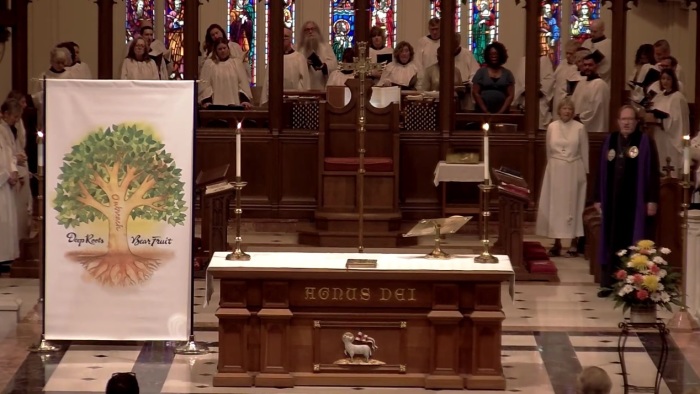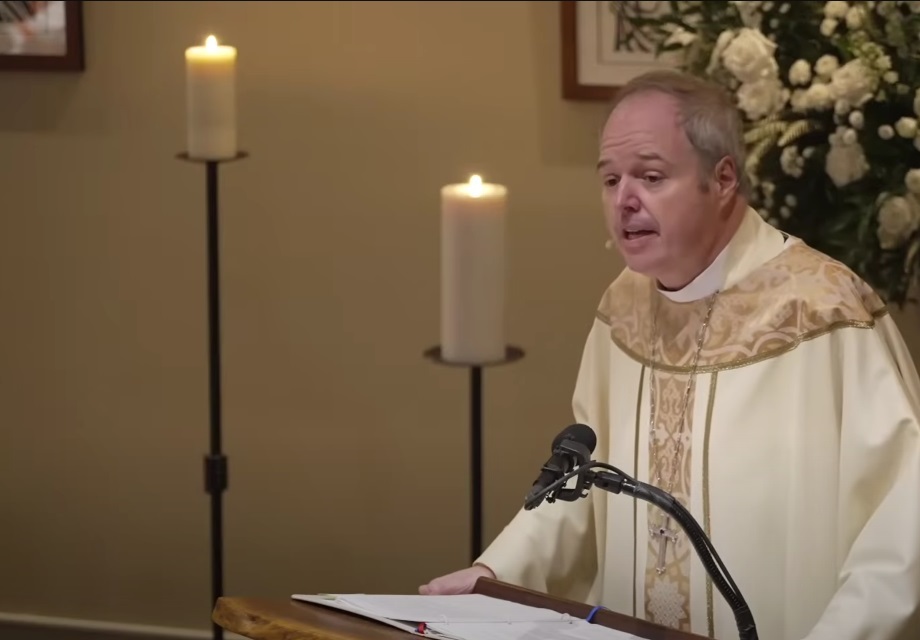Episcopal Church loses nearly 40K members, but sees worship attendance grow

The Episcopal Church saw a decline in membership of about 40,000 people last year, but also saw an increase in average Sunday worship attendance, according to recently released statistics.
According to numbers released last Friday, the mainline Protestant denomination had a membership of approximately 1.547 million people and 6,754 congregations in 2023.
This marks a decline from 2022, when the denomination reported having 1.584 million members and a slight decrease in the number of congregations, which was 6,789.
It also represents a sharp drop compared to 2010, when the denomination reported that its membership was 1.96 million, or nearly a half million more people than last year.
However, for the second consecutive year, the denomination saw a rise in average Sunday worship attendance, with 2023 seeing nearly 411,000 average attendance, while 2022 had 373,000 and 2021 had 312,000.

The Rt. Rev. Sean Rowe speaks at the service held to formally install him as presiding bishop of The Episcopal Church on Saturday, Nov. 2, 2024, at The Chapel of Christ the Lord in New York, New York. | Screengrab/YouTube/The Episcopal Church
According to the 2023 Parochial Report, the rise reflects a gradual recovery from the COVID-19 pandemic, when, because of lockdowns and public health concerns, worship attendance plummeted.
“It is important to note that [the average Sunday attendance] reported here only reflects in-person attendance,” explained the report. “About three-quarters of Episcopal congregations offered online or hybrid worship at some point during 2023.”
“While about two-thirds of those congregations track virtual participation, there is no standardized way to measure it — whether by counting people, counting connected devices, using a formula to estimate based on other metrics, etc. — therefore online attendance numbers are not included in this report.”
Nevertheless, average Sunday attendance remains well below the 600,000 reported in 2014 and the 547,000 reported in 2019.
The 2023 numbers also show that nearly a third (32.9%) of Episcopal congregations have 25 or fewer average Sunday attendance, while 26.8% have between 26 and 50, almost one-third (32.1%) have between 51 and 150, while 8.3% have 151 or more in average attendance.
Over the last couple of decades, The Episcopal Church has experienced considerable decline in its membership and average worship attendance, driven by multiple factors, including its increasingly progressive theological direction.
In 2003, for example, when the denomination ordained its first openly gay bishop, scores of theologically conservative congregations and a couple of dioceses opted to leave in protest.
These departures led to years of litigation over numerous church properties and assets, as the national denomination refused to recognize the disaffiliation of congregations and regional bodies.
Earlier this month, the Rev. Sean Rowe was installed as the new presiding bishop of The Episcopal Church, succeeding the Rev. Michael Curry, who became the first African American leader of the denomination in 2015.
During the installation service, Rowe preached that churches and dioceses cannot “go it alone,” but rather, they “must acknowledge our mutual interdependence, our need to do ministry together, to share what we have and to sustain one another.”
“In this badly hurting world, we need to become one church,” Rowe said. “We’re not a collection of dioceses and institutions, a collection of the ways of doing things. We are one church, one church in Jesus Christ.”
“This work, the work of proclaiming in word and deed that Jesus’ resurrection and life is the work to which God has called The Episcopal Church, now and always, as one church, together.”



























